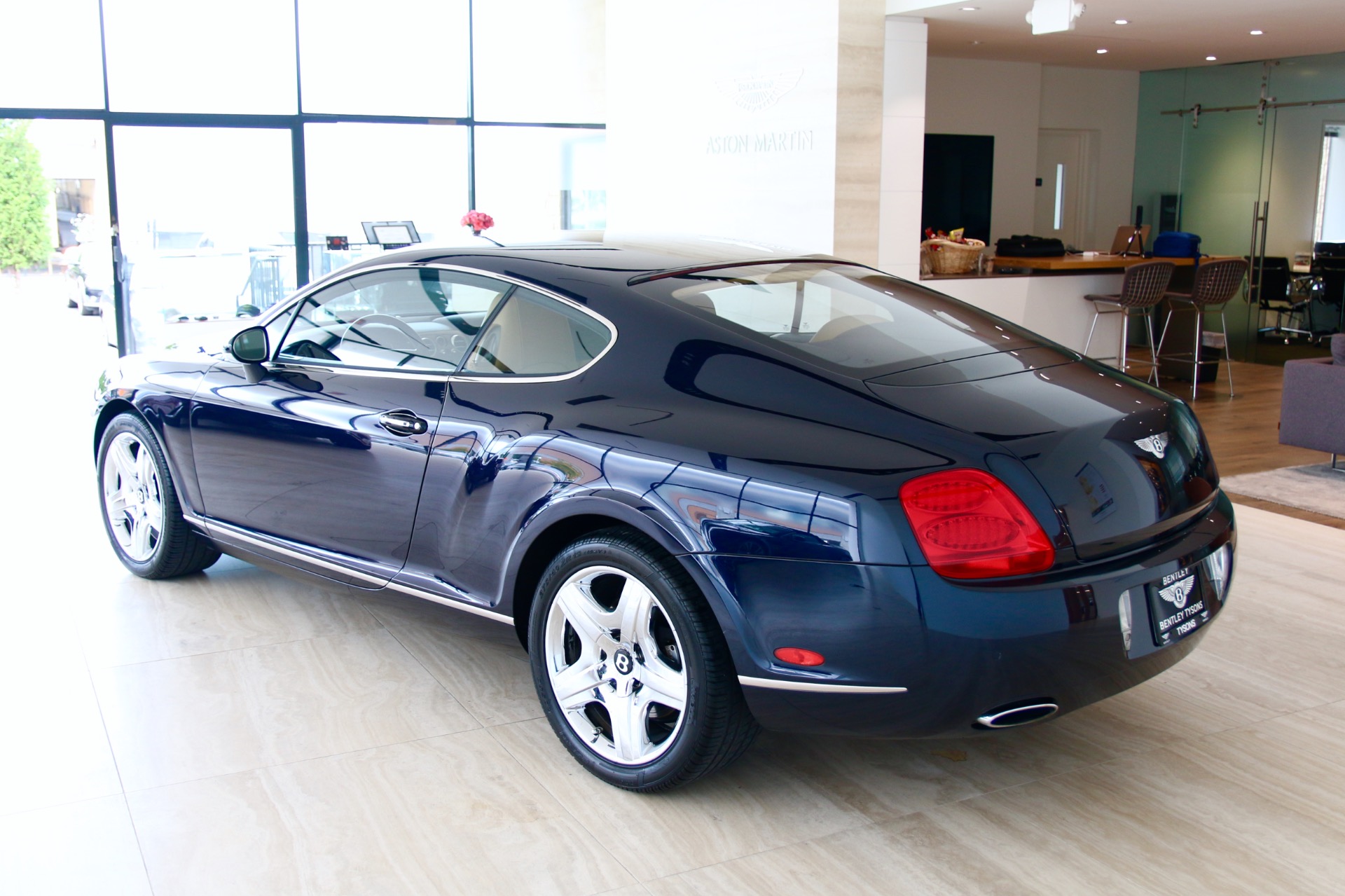Bentley For Sale Under $25 000 – Despite the many advantages of buying and selling second-hand goods, there are some challenges that both buyers and sellers must navigate. The culture of buying second-hand goods is rapidly shifting in the modern world, particularly among younger generations. Many online platforms also allow buyers and sellers to leave feedback and reviews, helping to build trust and credibility in the transaction. If the buyer is satisfied with the findings, the next step is usually negotiation. Additionally, trends in sustainability and eco-conscious living have contributed to the growth of the second-hand market, as consumers become more aware of the environmental impact of their purchasing decisions. For sellers, the challenge lies in pricing items fairly and accurately representing their condition. In addition to offering unique items and affordable prices, many second-hand stores also serve an important social and community function. In some cases, the sale of an item can mark a pivotal moment in someone’s life. In a circular economy, items are kept in use for as long as possible, reducing the need for new resources and minimizing environmental harm. A house can be bought, a car can be sold, a watch can be pawned. By purchasing second-hand items, consumers can help reduce the demand for new products, thereby lessening the environmental impact associated with manufacturing and shipping. Some need the money, some want to declutter, and others might feel the urge to let go of possessions as they enter new phases in their lives. Similarly, in relationships, individuals may feel as though they are selling themselves, presenting their best qualities and hoping for the best outcome. Additionally, brick-and-mortar thrift stores and consignment shops provide a more traditional avenue for selling second-hand goods. While many artists and creators are forced to sell their work in order to make a living, there is still a sense of purity in the act of creation. It implies that there’s nothing off-limits, nothing beyond the reach of commerce. After the sale is complete, the buyer assumes responsibility for the business and takes control of its day-to-day operations. Online marketplaces have opened up opportunities for people to buy and sell goods from the comfort of their own homes. For many, purchasing second-hand goods is not just about saving money, but about embracing sustainability, supporting a circular economy, and contributing to a more environmentally conscious world. For some, the thrill of hunting for unique, one-of-a-kind items is as much a part of the experience as the purchase itself.

New 2023 Bentley Flying Spur Hybrid For Sale (Special Pricing
Familyverified sellers onlyused marketplace leaders

New 2023 Bentley Continental GTC Azure V8 For Sale (325,350) Bentley
Familyverified sellers onlyused marketplace leaders

Used Bentley Cars for Sale Under 25,000 Autotrader
Familyverified sellers onlyused marketplace leaders

New 2024 Bentley Continental GT Convertible V8 For Sale (288,445
Familyverified sellers onlyused marketplace leaders

New 2023 Bentley Continental GTC V8 For Sale (274,055) Bentley
Familyverified sellers onlyused marketplace leaders

Used 2021 Bentley Continental GT Speed For Sale (Sold) Exclusive
Familyverified sellers onlyused marketplace leaders

PreOwned 2015 Bentley Continental GTC V8 For Sale () Miller
Familyverified sellers onlyused marketplace leaders

New 2023 Bentley Bentayga EWB V8 For Sale (254,370) Bentley Palmyra
Familyverified sellers onlyused marketplace leaders

2005 Bentley Continental GT Stock P026099 for sale near Ashburn, VA
Familyverified sellers onlyused marketplace leaders

Used Bentley Cars for Sale Under 25,000 Autotrader
Familyverified sellers onlyused marketplace leaders
For the seller, the goal is often to maximize the value of the business, while for the buyer, the focus is on ensuring that the investment is sound and that the business can continue to thrive under new ownership. Online platforms like Etsy, for example, have given artisans a global audience for their high-quality handmade goods. A well-made product simply performs better. For the buyer, it can feel like a great opportunity, a chance to acquire something they’ve been searching for, or maybe just the satisfaction of knowing that a good deal is within reach. Unlike mass-produced items that may become outdated or fall apart with minimal use, quality products are designed to endure. People are increasingly looking for quality over quantity, preferring items that are durable, timeless, and well-made. We are all participants in a vast, interconnected economy, one that doesn’t just involve physical goods but extends to ideas, relationships, and even identities. In this sense, purchasing pre-owned items can be seen as a form of social responsibility, as it helps create a positive impact that extends beyond the individual buyer. Social media platforms, for example, offer users a chance to buy into their own identity, to curate a version of themselves that is more appealing, more desirable, more marketable. The materials used, whether it’s hardwood, durable fabrics, or premium upholstery, are chosen for their longevity and aesthetic appeal. Thrift stores, estate sales, and online marketplaces are excellent places to find second-hand furniture, with options ranging from antique and vintage pieces to more contemporary items. Online platforms such as eBay, Craigslist, and Facebook Marketplace have made it easier than ever for individuals to sell their unwanted items to a global audience. The world may increasingly operate under the assumption that everything is for sale, but the human spirit, with its capacity for love, creativity, and compassion, refuses to be bought. Historically, many products were made by local craftsmen, and there was a direct relationship between the creator and the consumer. Electronics are another category of second-hand goods that have seen a rise in popularity. As society has evolved, the scale of production has expanded, and many quality goods are now mass-produced or distributed through large retail chains. Additionally, second-hand furniture allows buyers to find unique items that may not be available in traditional furniture stores. In this sense, online second-hand markets have not only made pre-owned goods more accessible but have also made them more desirable, offering an alternative to the mass-produced, one-size-fits-all nature of new products. The sale and purchase of second-hand goods play a pivotal role in this transition, demonstrating how individuals can make a meaningful impact through everyday choices. With the rise of e-commerce, the accessibility of quality goods for sale has expanded exponentially.
The items placed for sale are not merely commodities; they are often vessels of memories, symbols of past achievements, or representations of something bigger than the price tag they carry. For instance, businesses in industries such as technology, renewable energy, or e-commerce may attract more buyers due to their perceived growth potential. They remind us that, despite living in a world where everything is for sale, there are some things that remain priceless. The materials used, whether it’s hardwood, durable fabrics, or premium upholstery, are chosen for their longevity and aesthetic appeal. The internet, for example, has created a space where anyone can buy or sell almost anything, from physical products to intangible services. When someone buys a second-hand item, whether it’s a piece of furniture passed down through generations or a retro jacket from a bygone era, they are not just acquiring an object; they are connecting to a story, a memory, or a cultural moment. When consumers buy these goods, they are investing in both the product and the people behind it. When people choose quality goods, they are choosing longevity over convenience, enduring craftsmanship over temporary trends, and often, a timeless aesthetic over what is in vogue today. On the other hand, buyers may seek to negotiate lower terms based on the findings from their due diligence or their assessment of the business’s future potential. The act of selling can be both a release and a renewal, a letting go that paves the way for something new and unknown. Just as with material possessions, when a person is “for sale,” they put their value on display for others to assess. But the financial aspect is only one part of the equation. For some, selling something may feel like a sacrifice, while for others, it may feel like an investment in their future. Sellers also have to deal with the emotional aspects of letting go of a business that they may have built over many years. From online platforms to local thrift stores, second-hand goods offer an opportunity for consumers to access unique products, save money, and reduce their environmental footprint. The process of selling it can be seen as a form of letting go, a recognition that the future may look different from the past, but that doesn’t diminish its importance or value. Our emotional lives, our personal narratives, and even our deepest fears have been monetized. Through online marketplaces and platforms, small businesses and independent creators can sell their goods to a global audience. Whether it’s funding education, supporting homelessness services, or providing medical assistance, the money spent in second-hand shops can contribute to making a difference in the lives of others. This sense of connection can also extend to the broader culture of quality goods, where consumers and creators share a commitment to excellence and a desire to preserve the craft and tradition behind these products.